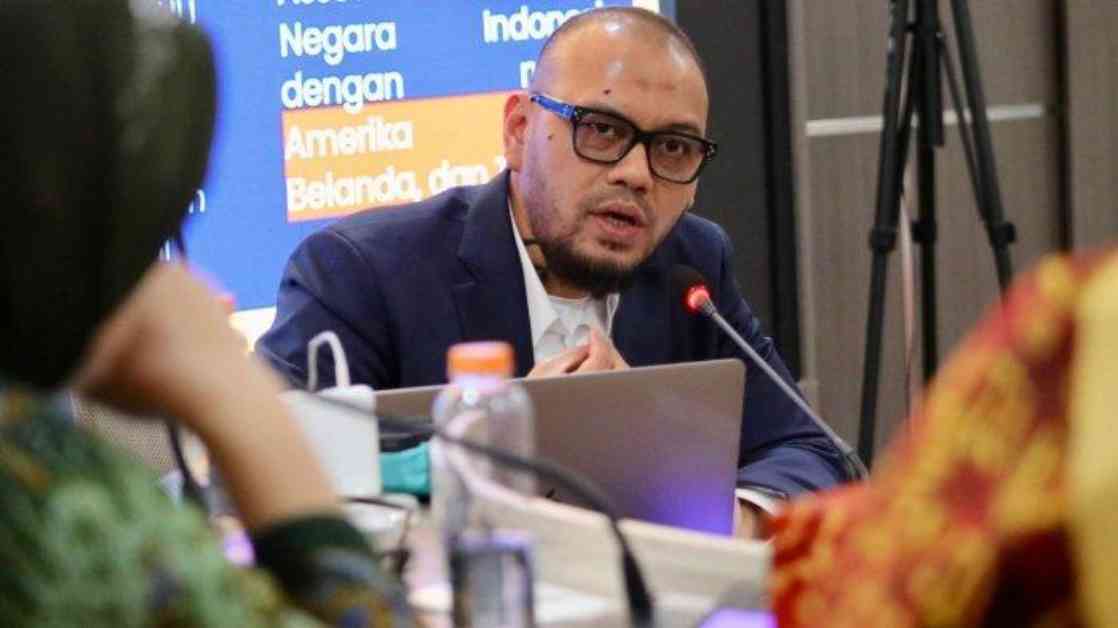Indonesia has been plagued by rampant corruption, showcasing the weaknesses in the legal enforcement system when it comes to tackling corrupt practices. High-profile corruption scandals involving trillions of rupiah, such as the alleged mega-corruption case at PT Pertamina which has cost the country up to Rp271 trillion since 2018, have only exacerbated the situation. These cases join a long list of other major scandals, including BLBI, Jiwasraya, ASABRI, and PT Timah, further eroding public trust in the fight against corruption.
In the midst of this crisis of confidence, the approval of the Asset Seizure Bill, also known as the Rancangan Undang-Undang (RUU) Perampasan Aset, is seen as an effective solution. However, its discussion and approval in the House of Representatives (DPR) have been stagnant. Legal and development observer Hardjuno Wiwoho believes that the delay in passing the bill reflects the lack of seriousness on the part of the state in combating corruption.
Speaking in Jakarta on Wednesday (5/3/2025), Hardjuno emphasized the importance of passing the Asset Seizure Bill without further delay. He explained that asset seizure is an effective way to deter corrupt individuals, highlighting that relying solely on imprisonment is insufficient. Many corrupt individuals can still live comfortably after serving their sentences because their assets remain untouched. “Asset seizure must be the primary weapon in the fight against corruption,” he added.
According to Hardjuno, the strategy to combat corruption must encompass three main aspects: prevention, enforcement, and asset recovery. However, the aspect of asset recovery is often neglected due to convoluted legal mechanisms. The process of recovering assets acquired through corruption is typically dependent on criminal verdicts, which can take years and provide opportunities for corrupt individuals to conceal their assets.
Hardjuno further explained that the Asset Seizure Bill introduces a crucial breakthrough by implementing a non-conviction based asset forfeiture mechanism. This mechanism allows for the seizure of assets without waiting for a criminal verdict. By streamlining the process, the bill aims to prevent corrupt individuals from hiding their ill-gotten gains and ensure that justice is served promptly.
Expert Insights on Asset Seizure
Legal experts have echoed Hardjuno’s sentiments, emphasizing the importance of asset seizure in the fight against corruption. Renowned legal scholar Dr. Maya Sari highlighted the significance of non-conviction based asset forfeiture in disrupting corrupt practices. “Asset seizure serves as a powerful deterrent, sending a clear message that ill-gotten gains will not go unpunished,” Dr. Sari stated.
Moreover, financial analysts have noted the economic impact of corruption on Indonesia’s development. Dr. Ahmad Rahman, an economist specializing in anti-corruption policies, stressed that the recovery of stolen assets through effective legislation is crucial for the country’s economic growth. “Corruption drains valuable resources that could otherwise be invested in infrastructure, healthcare, and education. Asset seizure is a critical step towards reclaiming these resources for the benefit of all Indonesians,” Dr. Rahman emphasized.
Challenges and Opportunities Ahead
While the Asset Seizure Bill presents a promising solution to combat corruption, there are challenges that must be addressed to ensure its effectiveness. Legal experts have pointed out the need for robust enforcement mechanisms and safeguards to prevent abuse of power in asset seizure processes. Transparency and accountability in asset recovery procedures are essential to uphold the rule of law and protect individuals’ rights.
Furthermore, public awareness and engagement play a vital role in supporting anti-corruption efforts. Educating citizens about the detrimental effects of corruption and the benefits of asset seizure can foster a culture of integrity and accountability. Civil society organizations, the media, and government agencies must collaborate to raise awareness, monitor asset recovery processes, and hold authorities accountable for their actions.
In conclusion, the approval and implementation of the Asset Seizure Bill are crucial steps towards combating corruption and restoring public trust in Indonesia’s legal system. By seizing illicitly acquired assets and holding corrupt individuals accountable, the country can pave the way for a more transparent, accountable, and equitable society. Upholding the principles of justice and integrity is essential to building a prosperous future for all Indonesians.






















